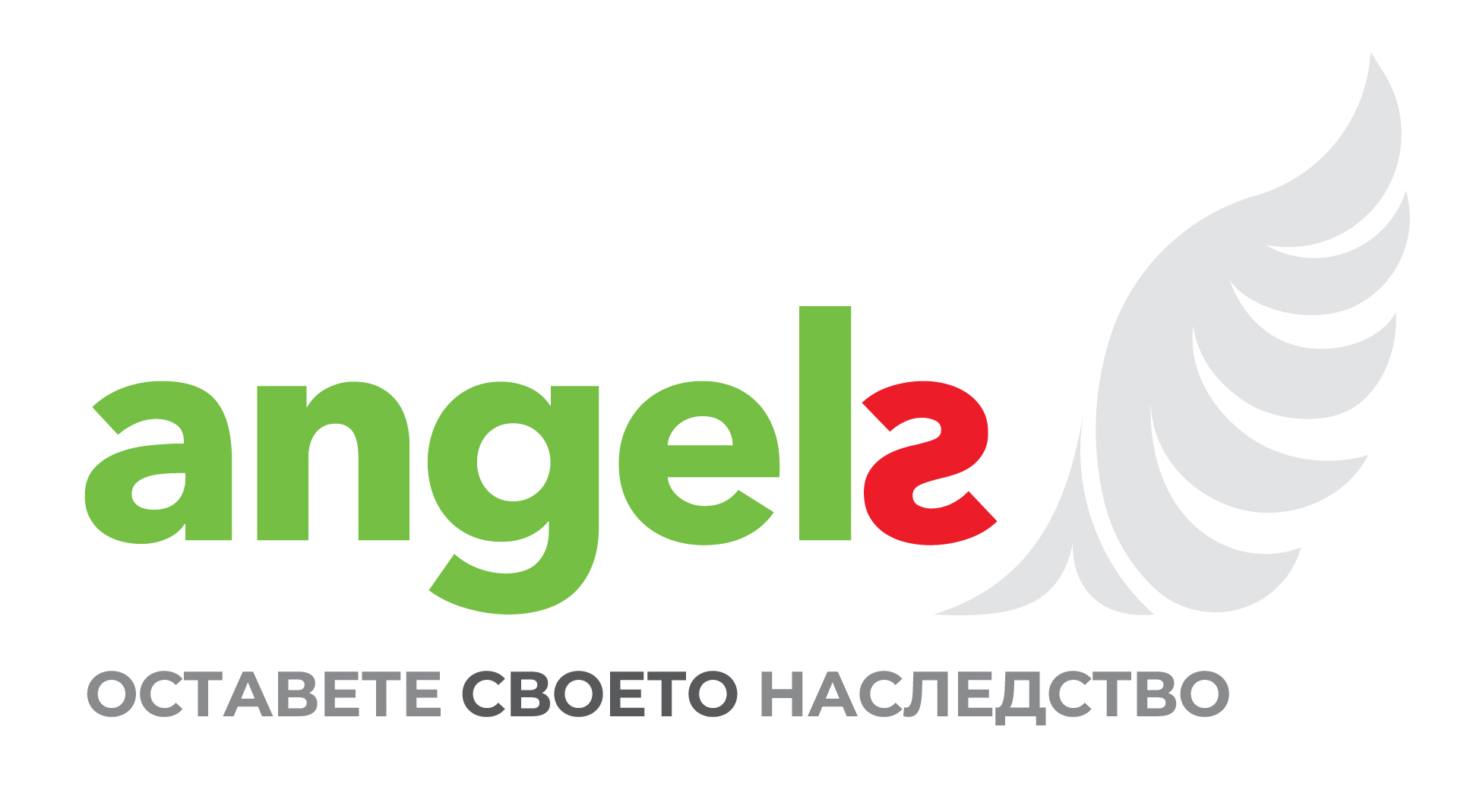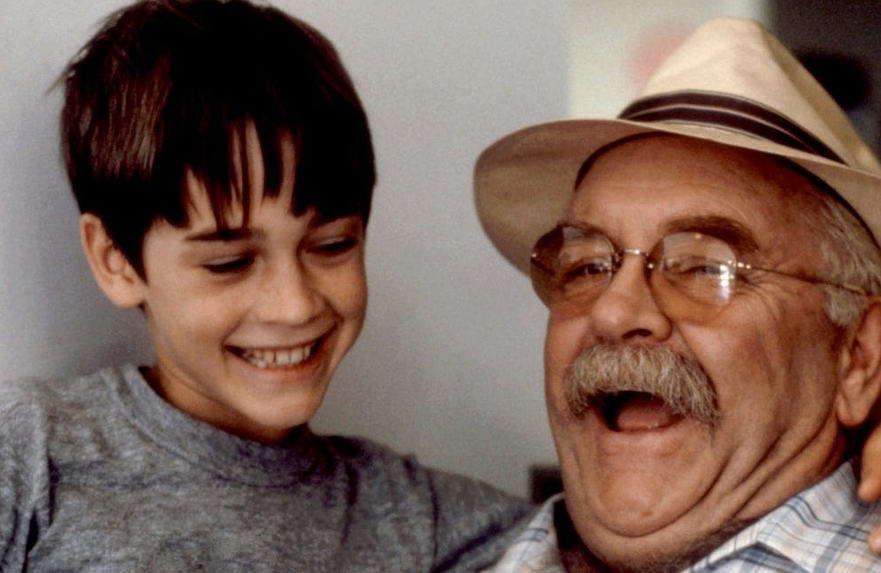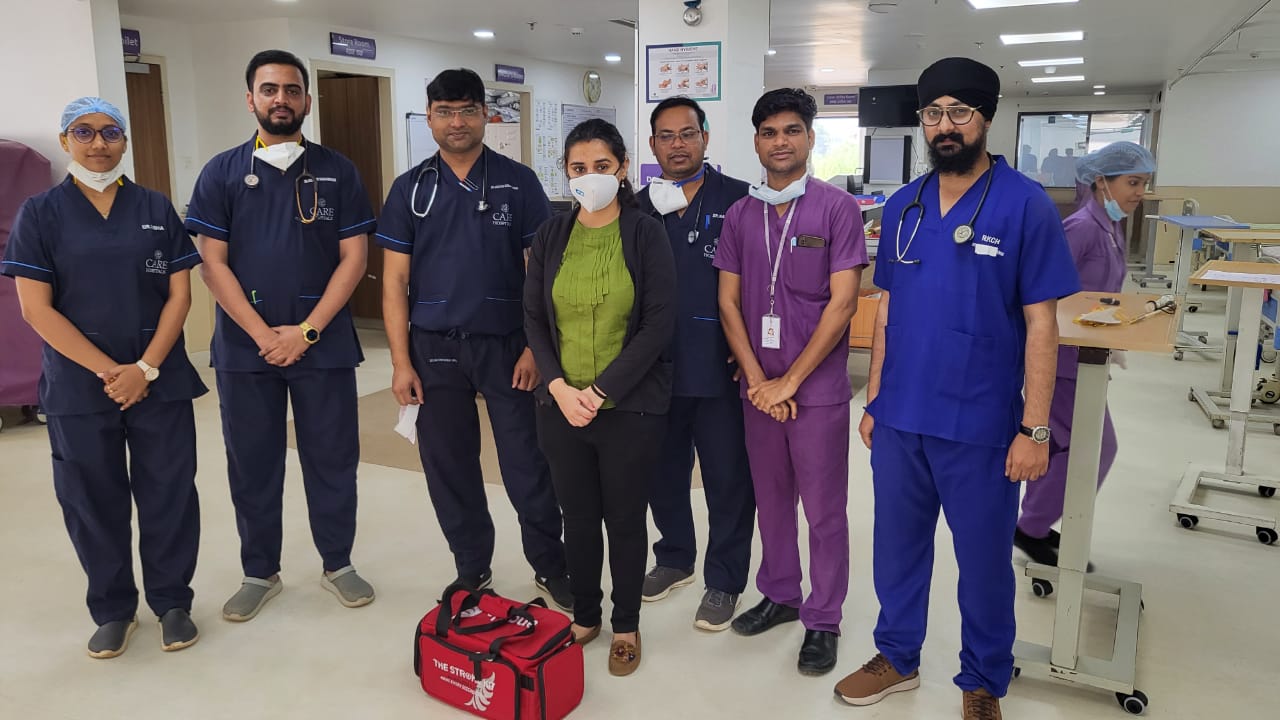
Chhattisgarh, което означава „тридесет и шест крепости“, първоначално е името, дадено на територията на династията Хайхая в Ратанпур, основана около 750 г. Това е държава без излаз на море в Централна Индия, която споделя границата си със седем щата – Утар Прадеш на север, Мадхя Прадеш на северозапад, Махаращра на югозапад, Шарханд на североизток, Одиша на изток и Андра Прадеш и Телангана на юг. Дом на 30 милиона души, които живеят в 33 района, това е седемнадесетият най-населен щат в Индия.
Както всеки щат в Индия, Chhattisgarh има по-голяма география с реки, грапав терен и широколистни гори, които налагат предизвикателство за транспортирането на критично болни пациенти до основните градове навреме за лечение. Освен това голяма част от Чатисгарх е под контрола на наксалитските партизани – въоръженото крило на група комунисти, подкрепящи маоистките политически настроения и идеология. Всъщност, в няколко джоба на дивизия „Бастар“ на юг, щатският закон понякога не функционира и конфликтът възпрепятства развитието на тази плодородна област.
Въпреки тези предизвикателства, екипът на „Ангели“ в Индия реши през 2021 г. да започне работа в този регион с недостатъчно обслужване с цел укрепване на екосистемата от инсулти. За мен, със седалище в Делхи, задачата беше възможност да посрещна нужда и да направя разлика. Първоначално се колебаех. Това ще бъде първият ми път, когато работя извън централата на „Ангели“ и в регион, който вероятно ще представлява проблеми с безопасността. Въпреки това, след дълго обсъждане и създаване на ясен стратегически план, който да разглежда всички въпроси, успях да взема решение, да прегърна предизвикателството по положителен начин и да се стремя да го превърна в постижение.
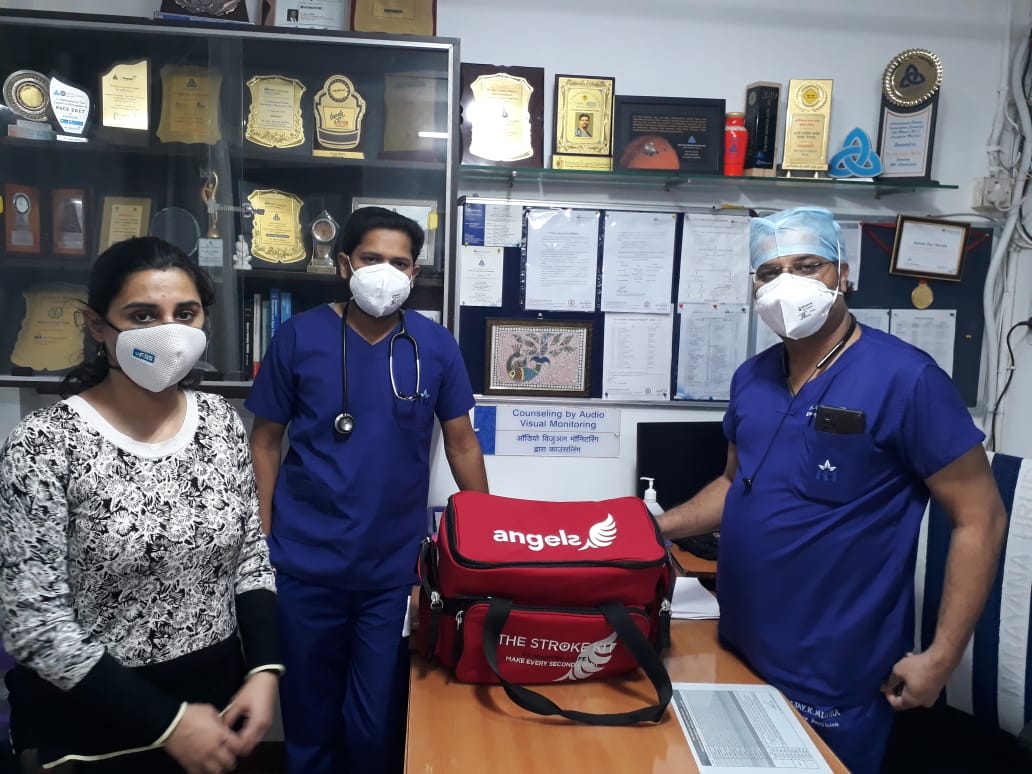
Първоначалният план беше да се покрие Райпур, столицата на Чатисгарх, за да се създадат центрове за насочване и постепенно да се изгради увереност за покриване на по-отдалечени територии. Идентифицирах седем болници в Райпур, включително първични и всеобхватни центрове, и се впуснах в процеса на консултации във всяка от тях – от наблюдение до мониторинг на качеството. Всички тези болници вече са регистрирани в RES-Q. През първата година също успях да разработя два нови центъра за лечение на инсулт в Райпур. Болницата за грижи Ramakrishna и Болница MM Narayana постигнаха време от вратата до лечението съответно от 48 и 30 минути и увеличиха честотата на реканализация от 0 на >5%.
По това време осъзнахме, че сътрудничеството с правителството ще ни помогне да разширим обхвата и въздействието си. В началото на януари 2022 г. започнах дискусия с отделение за незаразни болести (NCD) на Chhattisgarh и ги информирах как, като работим заедно, можем да изградим капацитет и да оптимизираме инфраструктурата за лечение на инсулт.
Постоянството се отплаща. През юли 2022 г. щатът издава писмо за одобрение за Инициатива Angels“ и се съгласи да подкрепи нашата работа в три недостатъчно обслужвани областни болници като пилотен проект заедно с областната болница „Райпур“.
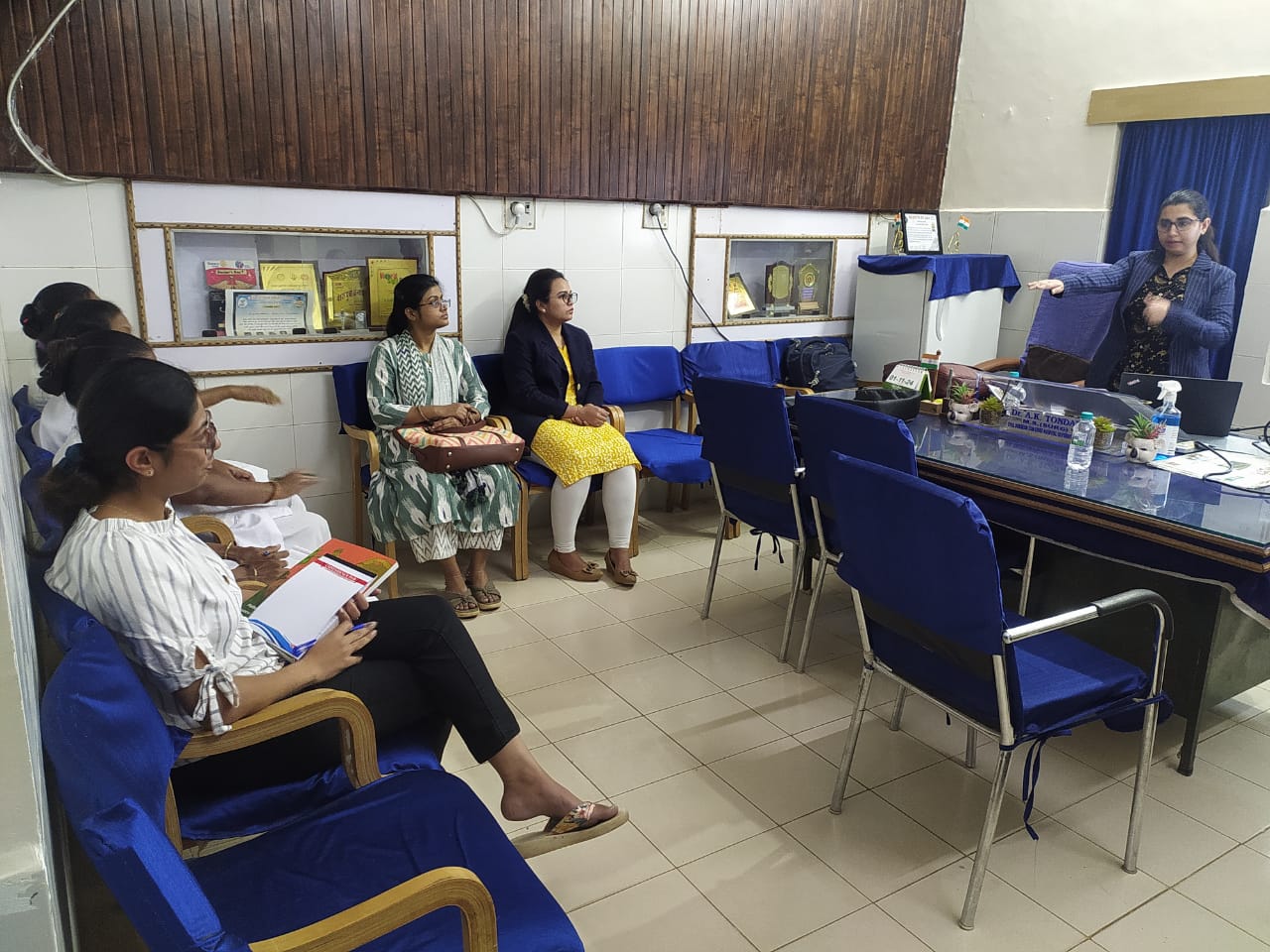
Проучване на по-новите предизвикателства
Първото ми посещение в Райпурската областна болница Райпур веднага разкри ново предизвикателство, когато открих, че тази болница няма КТ. Това беше обезкуражаващ неуспех, идващ толкова рано в нашия план. Въпреки това, можех само да композирам мислите си и да завърша наблюдението. Изпратихме доклад за моето посещение на властите, от които е било отварящо очите лице. Тази болница се намира в столицата Чатисгарх и много влиятелни хора търсят лечение там. отделение се ангажира да осигури необходимата инфраструктура и предложи да продължа да работя с другите три болници, които бяха част от пилотния проект.
Така че след известно обсъждане проектът беше разширен до три недостатъчно обслужвани територии, а именно Дамтари, Янжир Чампа и Дантевада. И трите региона са недокоснати части на Чхатисгарх. Това ми постави нови предизвикателства, тъй като трябваше да пътувам от Райпур, за да проуча условията в тези райони. Разстоянията между териториите бяха опустошителни, тъй като местният транспорт не винаги е на разположение и това, че е район на Наксалит, добави допълнителен риск.
Дамтари е на около 80 км южно от Райпур и пациентите пътуват от тук до столицата за лечение. Поради това беше от голямо значение да се създадат центрове, готови за инсулт в Дамтари. За да се оборудва районната болница Dhamtari като болница за лечение на инсулт, беше започната програма за изграждане на капацитет за всички лекари и медицински сестри. Голямото предизвикателство в тази областна болница не беше наличието на КТ скенер, а фактът, че нямаше техник на разположение след часове. Трябваше да се върна в отделение на NCD и да ескалирам нуждата. За щастие, те признаха нашите усилия и сериозност, и CT съоръжението стана оперативно 24/7 в рамките на два месеца от дискусията.
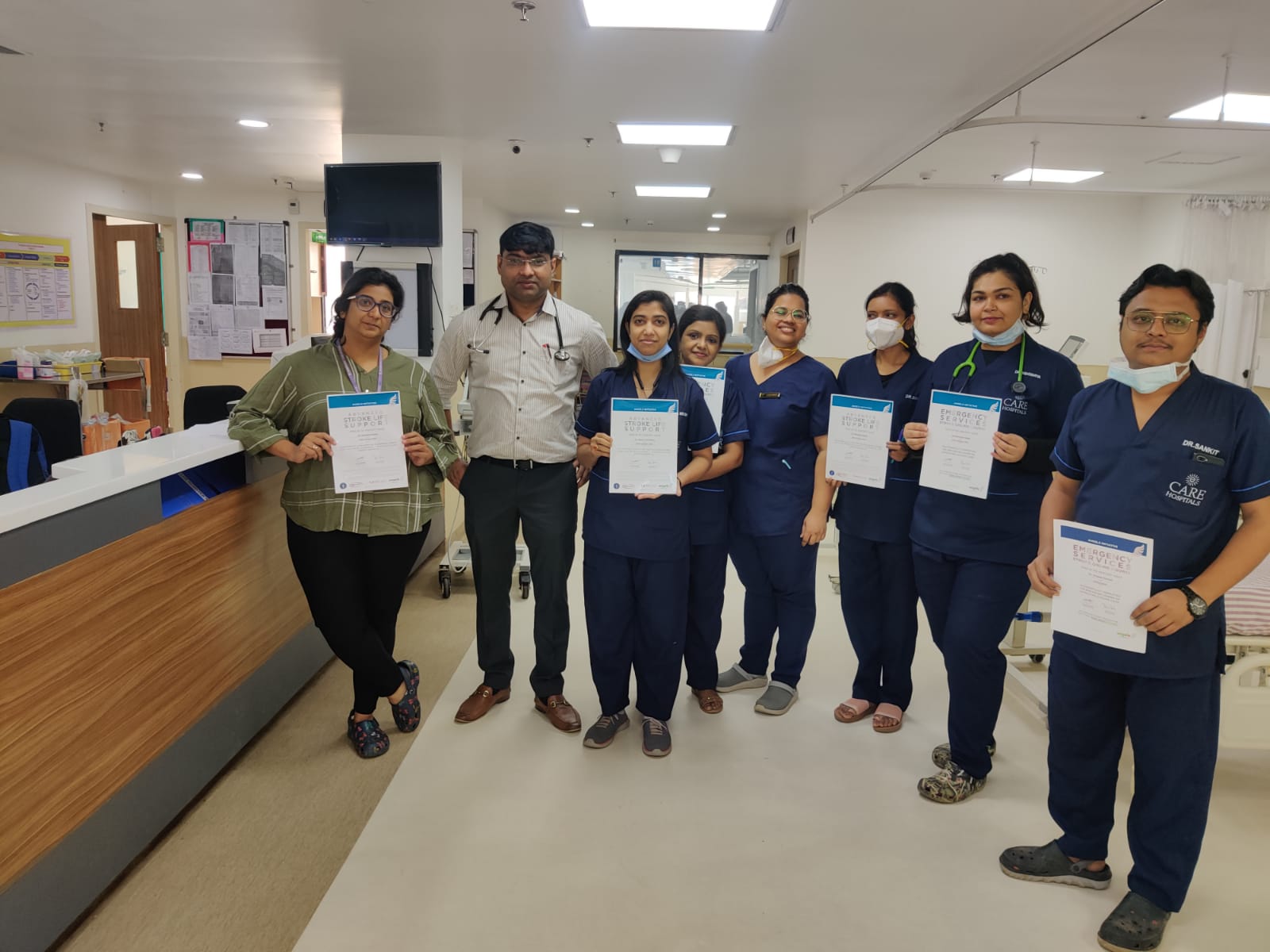
В Джанжир Чампа, разположен на около 170 км южно от Райпур, предизвикателството беше, че инсултът не е приоритет. Тук задачата беше да се започне от нулата и да се убеди болницата, че инсултът е медицинска спешност случай, а скоростта е от съществено значение. В рамките на няколко седмици от началото на програмата за изграждане на капацитет пациентите с инсулт, пристигащи в тази болница, получиха спешна помощ и пригодните пациенти (без противопоказания) бяха лекувани с тромболиза.
Дантевада, третият район в нашата пилотна програма, се намира на около 360 км южно от Райпур, а рисковете за сигурността в региона изключиха консултациите лично. С подкрепата на отделение на NCD обаче успях да организирам виртуални сесии със здравните специалисти в тази областна болница. Те вече лекуваха пациенти с инсулт с тромболиза, но малко пациенти стигнаха до болницата в рамките на прозореца за лечение. Поради това беше от решаващо значение да се информира населението за симптомите на инсулт и какво да се направи, ако се появят. Планът да се подготви районната болница Dantewada за лечение на инсулт следователно трябваше да бъде разширен до обществените здравни центрове и първичните здравни центрове, така че да можем да ангажираме подкрепата на лекарите и медицинските сестри в тези центрове, за да разпространим посланието до местното население.
Успехът е неизбежно пътуване
Надявам се, че продължаването на ориентирания към решението подход към оптимизиране на грижите при инсулт ще доведе до по-положителни резултати. Опитът разшири собствената ми гледна точка, тъй като никога преди не съм пътувал. Бях впечатлен от това колко готови бяха местните болници да ме прегърнат и от подкрепата на екипа на NCD за моята работа.
Отне ми кураж да се докажа, че съм против толкова много шансове, особено като жена. Но аз съм мотивиран от желанието да предизвикам статуквото и да създам центрове, готови за инсулт, не само в град Райпур, но и в целия щат Чатисгарх. Следващата ми цел е да внедря стратегията на „Ангели“ и да превърна Chhattisgarh в безопасен регион за инсулт.
